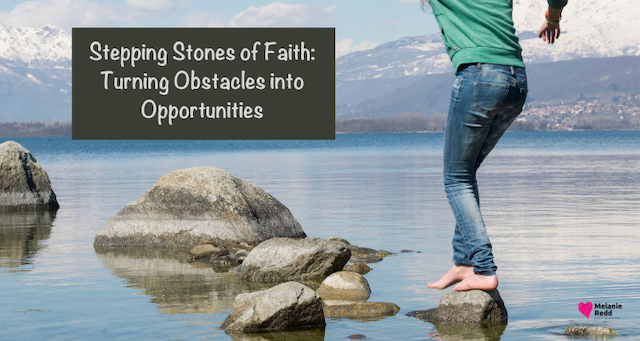Who owns your body?

My body is mine, no one’s but mine. That belief is at the heart of Western culture today.
It’s the heart of many culture clashes too:
- Fair employment hinges on this issue. A slave driver says, ‘I own you, so you do as I say.” Unionized employees say, “I’ll present myself to work on condition of just pay, for agreed hours, in a safe setting.”
- Abortion hinges on this issue. Pro-choice advocates say, “It’s my body; no one else decides.” Pro-life advocates say, “Not if you’re harming another life.”
- Gay rights hinge on this issue. Is your body your own so you can do as you like? Or do you answer to an authority who decides what you can do with your body?
- Gender identity hinges on this issue. Am I whatever I define myself to be? Or am I whatever body I was given?
- Faith hinges on this issue. You will live differently if you believe “God owns my body” or “I own my body.” How you relate to God is at the heart of how you practice your faith.
So, this is a confronting claim:
1 Corinthians 6:19b–20 (NIV)
You are not your own; you were bought at a price. Therefore honour God with your bodies.
That really needs some explanation.
Owned?
While we think of ourselves as independent individuals, that was never the case in ancient Middle East world. According to Babylonian creation myths, humans were created in servitude to the gods, to water their gardens. The Jewish story is different. God honoured us with his image, authorizing us with royal authority to care for the creatures that live with his provision (Genesis 1:26-30). He sculpted our bodies and breathed his own life into us (2:7), calling us to partner with him in tending his garden (2:15).
Plato imagined the physical world as just a shadow of the real spiritual realm. That’s not the Bible’s view. We’re not spirits saddled with bodies. We’re physical beings alive with God’s breath. What we do with our bodies is what we do. We answer to God for whether we help or harm the environment and its creatures.
Anyone who takes the life from another’s body answers to God because everybody is under divine protection (Genesis 4:8-9), even the murderer (4:15). Violence violates God’s care. Yet history is the story of kingdom after kingdom hunting people to gain power (10:8-12; 14:1-4).
So, the Jewish story remembers when their bodies were enslaved:
Exodus 2:23–25 (NIV)
23 The Israelites groaned in their slavery and cried out, and their cry for help because of their slavery went up to God. 24 God heard their groaning and he remembered his covenant with Abraham, with Isaac and with Jacob. 25 So God looked on the Israelites and was concerned about them.
The exodus is not about God setting people free from inner feelings of guilt. It’s about God setting people free from being dominated by others. Seeing Pharaoh’s army sink into the Red Sea, they celebrate the one who saved them. They no longer serve the one who enslaved them.
So what are they now? Emancipated individuals, each one going off to do their own thing? Or do they belong to the one who redeemed them?
Listen to their song:
Exodus 15:2–18 (NIV)
2 “The Lord is my strength and my defence; he has become my salvation. He is my God, and I will praise him, my father’s God, and I will exalt him. … 13 In your unfailing love you will lead the people you have redeemed. … 18 The Lord reigns for ever and ever.
The one who rescued them leads them. God does not lead like Pharaoh, forcing them into submission. He calls them into covenant relationship with him based on what he has already demonstrated: his wise leadership, his enduring care for the people he has redeemed (Exodus 24:3).
They recognize they are not their own. They were redeemed at a price. They no longer present their bodies to serve the evil taskmaster’s goals. They use their bodies to live wisely and well as their new sovereign defined it, to honour God with their bodies.
That’s the backstory for 1 Corinthians 6:20.
A new covenant
The laws God gave Israel at Sinai were not for all people and all times. God was planning an even bigger rescue, the redemption of all people in his Christ.
The saviour God sent us was the antithesis of everything that’s wrong with power in the world, every dominating and enslaving power. He didn’t look like a king. He had no fortress to rest his head in safety, no army to destroy his enemies. He used his regal authority to heal his suffering people, to free those oppressed by evil. He never used divine power for his own advantage. He became the servant, living and dying as one of us. It wasn’t hard for those in power to destroy him, asserting their violent authority by hanging him on a cross.
That’s how Jesus used his body: This is my body, given for you (Luke 22:19).
That’s when we discovered the heart of our heavenly sovereign. Instead of breathing fire against a world that killed his Son, God breathed his breath into the murdered body of his Son. God raised up the king he had always prepared for us, the king who demonstrated his love for us by facing death for us rather than forcing himself on us.
Physically raised from the dead, Christ has all authority in heaven and on earth, and he is calling all nations to live as he commands. But he’s not forcing his leadership on the world. That’s why it’s taken 2100 years so far. What astounding patience!
We who recognize Christ as Lord understand that God has called us to turn from violence against each other, to live with loving care for each other, reflecting his loving leadership. We take up our cross and follow him.
Our bodies are therefore instruments of his life and goodness instead of instruments of death and violence:
Romans 6:13 (NIV)
Do not offer any part of yourself to sin as an instrument of wickedness, but rather offer yourselves to God as those who have been brought from death to life; and offer every part of yourself to him as an instrument of righteousness.
So, who owns your body?
In new covenant relationship with God, my body is not my own. Christ established the covenant by giving his body, his very being, for us. We respond to his selfless love by giving our bodies, our very being, to him:
Romans 12:1 (NIV)
Therefore, I urge you, brothers and sisters, in view of God’s mercy, to offer your bodies as a living sacrifice, holy and pleasing to God — this is your true and proper worship.
Given what God has done to free us from being dominated by evil and restore us to his leadership in Christ (Romans 1–11), we respond by offering God our bodies in the service of all he is doing. Honouring God every day with the bodies he gave us is logical.
But it is not logical to expect that response from people who do not recognize Christ as Lord. Unfortunately, some Christians have used their bodies to picket abortion clinics, attend anti-gay marches, or sit-in for justice issues. Demanding a Christian lifestyle from people who are not Christ-followers is senseless and damaging. God never asked us to demand of society, “You mob must behave better!” That is not the good news God gave us.
God calls us to model society as he intends, to physically embody his good news.
That’s going to hurt. When our natural reaction is to repay evil with evil, God calls us to care for the offender, offering something to eat or drink. That’s using our bodies as a sacrificial offering for reconciliation.
We fear that if good people don’t oppose evil in society, then evil will prevail. Truth is, retaliating with the same methods will never conquer evil. Evil is conquered by doing good (Romans 12:17-21).
What we do with our bodies is the gospel in action.
Conclusion
Our bodies are gifts we received from God. I can say, This is my body.
But if we stop there, we’ve missed the point of why God gave us our bodies and how to use them well. Jesus said more: This is my body — given for you.
God’s life resides in our bodies. We’re not enslaved; we’re honoured temples of the divine presence. Temples honour or dishonour the God we represent. That’s the significance of what we do with our bodies.
The text
1 Corinthians 6:14–20 (NIV)
14 By his power God raised the Lord from the dead, and he will raise us also. 15 Do you not know that your bodies are members of Christ himself? Shall I then take the members of Christ and unite them with a prostitute? Never! 16 Do you not know that he who unites himself with a prostitute is one with her in body? For it is said, “The two will become one flesh.” 17 But whoever is united with the Lord is one with him in spirit.
18 Flee from sexual immorality. All other sins a person commits are outside the body, but whoever sins sexually, sins against their own body. 19 Do you not know that your bodies are temples of the Holy Spirit, who is in you, whom you have received from God? You are not your own; 20 you were bought at a price. Therefore honor God with your bodies.
What others are saying
Gordon D. Fee, The First Epistle to the Corinthians, NICNT (Grand Rapids, MI: Eerdmans, 2014), 293:
The body is the shrine of the indwelling Spirit and is therefore not one’s own but God’s, who purchased it through the work of the cross. “Therefore honor God with your bodies.” … This is the positive side of the preceding imperative: “Flee from sexual immorality” (v. 18a). Because the body is God’s, one must not use it in illicit intercourse; instead, one must make it a chaste temple whereby to honor God.
Paul Gardner, 1 Corinthians, ZECNT (Grand Rapids, MI: Zondervan, 2018), 289:
Paul is concerned that each believer recognizes that they belong to Christ and may be used only in Christ’s service. This service includes the body. The covenant, creator Lord has ownership rights, and the body is his (“The body is not for sexual immorality but is for the Lord, and the Lord is for the body”; 6:13). Once again Paul thinks of the creation story as he reflects on how the covenant people should live in preparation for the time when all things are made new, including and especially the body.
Related posts
- Joseph & Mrs Potiphar (Gen 39)
- What the heart speaks (Mt 15:15-20)
- What does it mean to be human? (Gen 2:15-25)
- Serving in God’s house (Mt 24:45-51)
- Empowering the king’s servants (Eph 4:10-13)
Seeking to understand Jesus in the terms he chose to describe himself: son of man (his identity), and kingdom of God (his mission). Riverview Church, Perth, Western Australia
View all posts by Allen Browne




